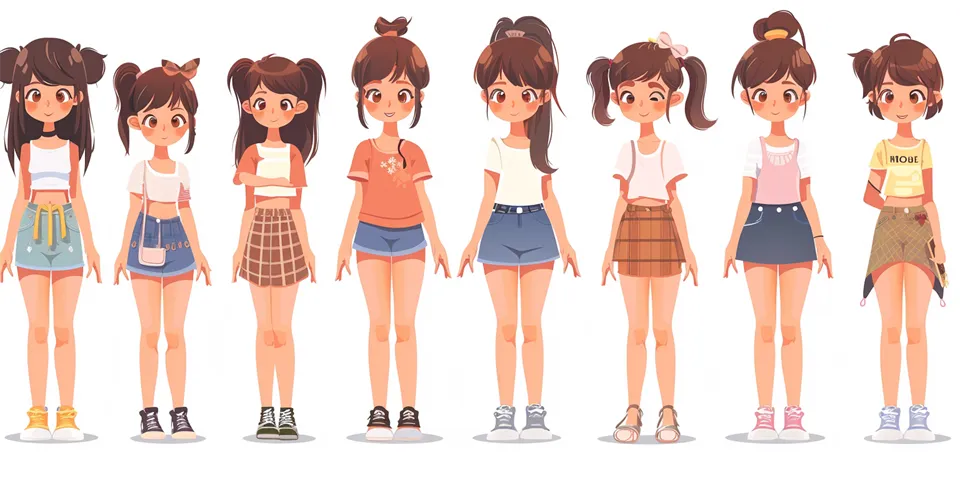Does fanfiction fall under the fair use act
Fanfiction—an uninvited expansion of popular books, movies, TV shows, or other copyrighted material by fans—proliferates online, energizing a whole community of writers and readers. Yet, the legal facets of creating and sharing fanfiction are murky, particularly when it comes to the Fair Use Act. The question beckons: Does fanfiction fall under the Fair Use Act?
Understanding Fanfiction
Fanfiction, as its name implies, is a fictional work created by fans of a specific original work of fiction. This could be a book, movie, television show, or any other form of media. Fanfiction allows fans to invent new storylines, delve into character backgrounds, or just to prolong the story beyond the canonical end. Despite the contentious issues surrounding copyright infringement, fanfiction continues to thrive on platforms like WattPad, FanFiction.net, and Archive of Our Own (Ao3).

Some authors, like J.K. Rowling, George R.R. Martin, and Stephanie Meyer, are generally supportive of their fan's creative endeavors, while others, most notably Anne Rice, are vehemently against it. Online platforms mediate this relationship, allowing and regulating fanfiction to varying degrees. Regardless of the author's personal opinion, the question of legality remains.
Fair Use Act: A Brief Overview
The Fair Use Act (Section 107 of the Copyright Act) provides limited use of copyrighted material without authorization from the copyright owner. It sets forth four factors courts consider to determine whether a use is fair: (1) the purpose and character of the use, (2) the nature of the copyrighted work, (3) the amount and substantiality of the portion used, and (4) the effect upon the value of the copyrighted work.
Notably, Fair Use is a vague and subjective doctrine. There's no precise measurement for how much copying constitutes a violation—the answers often lie swathed in murky legal terminology and depend on individual case analysis.
Fanfiction and Transformational Work
Fair use determination often hinges on whether a work is deemed 'transformative'. This means whether the new work adds value to, comments on, or criticizes the original. This characteristic is, ostensibly, core to fanfiction. Fanfiction necessarily transforms the canonical work, elaborating upon its universe or modifying it in some other creative way.
However, courts are inconsistent in interpreting what amounts to transformation. A fanfiction that significantly departs from the original work may stand a better chance of being deemed transformative, and hence of being protected by fair use. Nonetheless, the analysis depends on individual judges' perspectives, thus muddying the legal waters.
The Nature of the Copyrighted Work
This refers to whether the original work is more factual or more creative. The more creative a work, the more it is protected against fair use. As fanfiction is spun around creative works, this factor tends not to buttress its legal stance.
However, given the variety of genres and literary devices used in writing fanfiction, from parody to pastiche, the argument regarding the 'nature of the work' can be complex and multi-layered. Depending on the extent and manner of replication, this factor could also tip in favor of fanfiction. But again, it's subjective and largely debatable in court.
Amount and Substantiality of Portion Used
This measures how much of the original work has been used in the new creation. The less you use, the more likely your use is fair. Here, fanfiction occupies a precarious position. It generally requires substantial borrowing of elements like characters, settings, and plots. Consequently, this factor often works against fanfiction authors.
But it's worth noting that some fanfiction can be very different from the original narrative, borrowing only the skeleton of the original work. In these cases, this factor could argue for fair use. Still, the court's evaluation remains open-ended and dependent on each case's specifics.
Effect on the Market
This is often the most crucial factor. It evaluates whether the new work usurps the market for the original work, depriving the copyright owner of sales. Fanfiction, generally being non-commercial and provided for free, can trivially satisfy this criterion.
However, should a fanfiction gain immense popularity or be published for profit (as in the case of "Fifty Shades of Grey," originally a "Twilight" fanfiction), the nature of its impact on the original work's market may turn out detrimental for fanfiction's fair use claim.
Frequently Asked Questions
Q: Is all fanfiction illegal?
A: Not necessarily. Since the evaluation of fair use is situational and subjective, not all fanfiction is de facto illegal, nor is all fanfiction protected under fair use.
Q: Can I publish my fanfiction for profit?
A: It's a risky territory. If your work infringes on the copyright of the original work, and you are profiting from it, the copyright owner may have grounds for a lawsuit. Always consult a copyright lawyer if you're contemplating such a step.
Q: Are fanfiction websites liable for copyright violations?
A: Websites hosting fanfiction operate under the Digital Millennium Copyright Act (DMCA), which limits their liability as long as they respond promptly to takedown notices from copyright owners.
Conclusion
As the realm of fanfiction continues to expand, it navigates murky waters of legality surrounding the Fair Use Act. There isn't a black-and-white answer to whether fanfiction falls under the fair use act—it depends on various factors and individual interpretations. As it stands, fanfiction represents a riveting intersection of creativity, fandom culture, and copyright law.
References
- U.S. Copyright Office. (2015). Fair Use Index.
Explore your companion in WeMate

